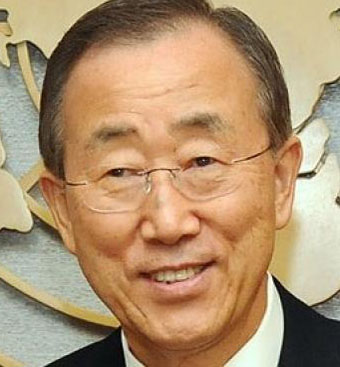UN warning to countries that harass human rights activists
Colin Stewart is a 45-year journalism veteran living in Southern…

As activists from Cameroon prepared to travel to Switzerland to challenge their government’s rejection of proposals to end repression of LGBT people, U.N. Secretary-General Ban Ki-moon issued a warning to governments not to harass people who take part in U.N. human rights reviews.
The warning was timely, coming shortly after a leader of Cameroon’s National Human Rights Commission issued a warning to any Cameroonian human rights activists who appeal for help abroad. If they do that, they shouldn’t expect to be safe when they return to Cameroon, she said.
In a radio broadcast on Sept. 4, the official warned, “Cameroonians who denigrate their country abroad in international bodies and then complain that they are insecure when they return to their home country — they themselves are responsible for what happens. They know they will be put down.”
Cameroonian officials are scheduled to appear this month in Geneva, Switzerland, at a United Nations review of the country’s latest report on human rights, which did not mention the dangers, stigmatization and imprisonment that LGBT people face in Cameroon.
Activists from the LGBT rights group Camfaids (the Cameroonian Foundation for AIDS) Camfaids are planning to attend that meeting to comment on the violations of human rights that LGBT people experience in Cameroon.
On Sept. 6, Ban Ki-Moon criticized people in Bahrain and the Philippines who harassed local activists who took part in recent reviews of their countries’ human rights records.
As reported by UPR Info, he called for action in response to such harassment:
United Nations Secretary-General Ban Ki-moon will be presenting at the 24th session of the Human Rights Council (HRC) starting [Sept. 6] his annual report “Cooperation with the United Nations, its representatives and mechanisms in the field of human rights”. The report describes specific cases of reprisals against NGOs engaging with human rights mechanisms, including the UPR.
The Secretary-General cites the case of Bahrain where “the newspaper Al-Watan published, on 25 September 2012, the names and photographs of participants in the universal periodic review of Bahrain, including Mohammed Al-Maskati, Maryam Al-Khawaja, Dr. Nada Dhaif, Dr. Mondher Alkhoor, Jalila Al-Salman and Said Yousif, who were accused of ’discrediting Bahrain in Geneva’. In addition, on 16 October 2012, Mr. Al-Maskati was reportedly summoned to Al-Hoora Police Station for interrogation, detained overnight and charged the next day with ’rioting and participating in an illegal assembly’.”
In the Philippines, Ms. Matutina, Secretary-General of Panalidan! Mindanao, “has been subjected to several incidents of threat and harassment and that, since she was a member of the Philippine UPR Watch delegation to discuss the human rights situation in Mindanao in the context of a side event during the nineteenth session of the Human Rights Council, members of the Armed Forces of the Philippines accuse Ms. Matutina of being a member of the New People’s Army, the armed wing of the communist party.”
In concluding his report, Ban Ki-moon reiterates that “reprisals and intimidation against individuals cooperating with the United Nations in the field of human rights are unacceptable” and calls on the HRC to “act to address cases of reprisal in a coherent and systematic manner and use the various tools it has at its disposal.”


